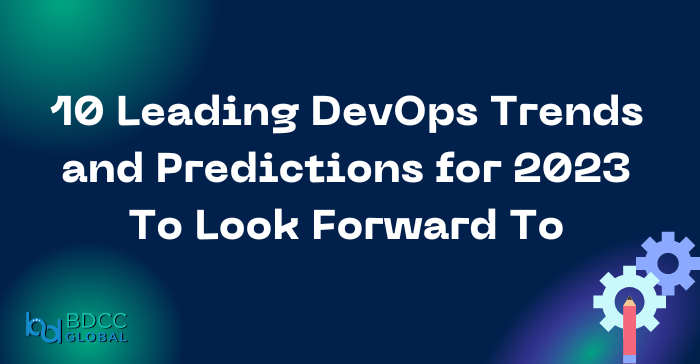
The world of DevOps is evolving, and it can be difficult to keep up with the upcoming trends and predictions. However, staying informed about the latest developments in this field is crucial for professionals who want to stay ahead of the curve. This particular piece will elaborate and discuss the ultimate 10 DevOps trends and forecasts for 2023.
Top 10 DevOps Trends and Predictions for 2023
The top ten trends and practices also discuss the role of agile methodologies, the emergence of microservices, the increasing use of containers, and the increasing importance of monitoring and observability. Overall, these trends and predictions highlight the continued evolution of DevOps and how it will shape the future of software development and delivery.
Cloud Adoption Will Continue To Increase
Many organizations are already using the cloud for their DevOps practices, which is expected to continue in 2023. The cloud offers several benefits for DevOps, including the ability to scale resources quickly and easily, receive access to a wide range of tools and services, and reduced infrastructure costs.
Containerization Will Become More Prevalent
Containerization is a popular trend in DevOps because it allows developers to package applications and their dependents into a single frame, that can then be easily launched to any environment. This process makes it easier to deploy applications, and it is expected to become even more popular in 2023.
Serverless Computing Will Gain Traction
Serverless computing allows many organizations to successfully run and administer their applications without the need to manage infrastructure. This will reduce the cost of service and improve efficiency, and it is envisioned to be more predominant in the upcoming years.
Integration of DevOps Practices into AI and ML
AI or artificial intelligence and ML or machine learning can aid in the automation of tasks and improve the efficiency of DevOps myths practices. In 2023, it is expected that more organizations will adopt these technologies to improve their DevOps processes.
The Role of the Developer Will Evolve
As the focus of DevOps shifts from deployment to continuous delivery and innovation, the role of the developer is expected to evolve. Developers will be expected to have a wider range of skills, including the ability to work with machine learning and artificial intelligence and an understanding of business goals and customer needs.
Security Will Become a Top Priority
In the past, security was often an afterthought in the software development process, with teams focusing primarily on getting new features and functionality to market as quickly as possible. However, as the consequences of security breaches become more severe, organizations will prioritize security from the outset, incorporating it into their DevOps trends processes and practices.
One key trend to look out for in 2023 is adopting secure development practices. Practices like secure coding standards and the use of static analysis tools to identify and fix vulnerabilities early in the development process. This will help organizations catch and fix security issues before they make it into production, reducing the risk of a costly breach.
Alliance Between Development and Operations Departments Will Improve
One of the key advantages of DevOps is the improved collaboration and support between the aforementioned two teams. In 2023, it is expected that this collaboration will become even more seamless, with tools and processes in place to facilitate communication and cooperation.
Microservices Will Gain Popularity
Microservices is a software infrastructure that involves breaking down a gigantic application into tiny and autonomous components that can be created, established, and measured independently. This approach can improve the speed and agility of development and the process of data transformation, and it is expected to become more prevalent in 2023.
Boost in Usage of Open-Source Tools Will Continue
Open-source tools are popular in DevOps because they are often free, flexible, and well-supported. In 2023, it is expected that more organizations will turn to open-source tools to improve their DevOps practices.
Increase in Utilization of Monitoring and Analytics Tools
Monitoring and analytics tools are essential for understanding the performance of applications and identifying issues. In 2023, it is expected that the use of these tools will increase as organizations strive to improve the reliability and stability of their applications.
In conclusion, the top 10 DevOps trends for 2023 will shape the future of DevOps and help organizations achieve greater efficiency, speed, and innovation in the delivery of software and services. By staying ahead of these trends and adapting to them, organizations can stay competitive in the fast-paced world of software development and operations.

